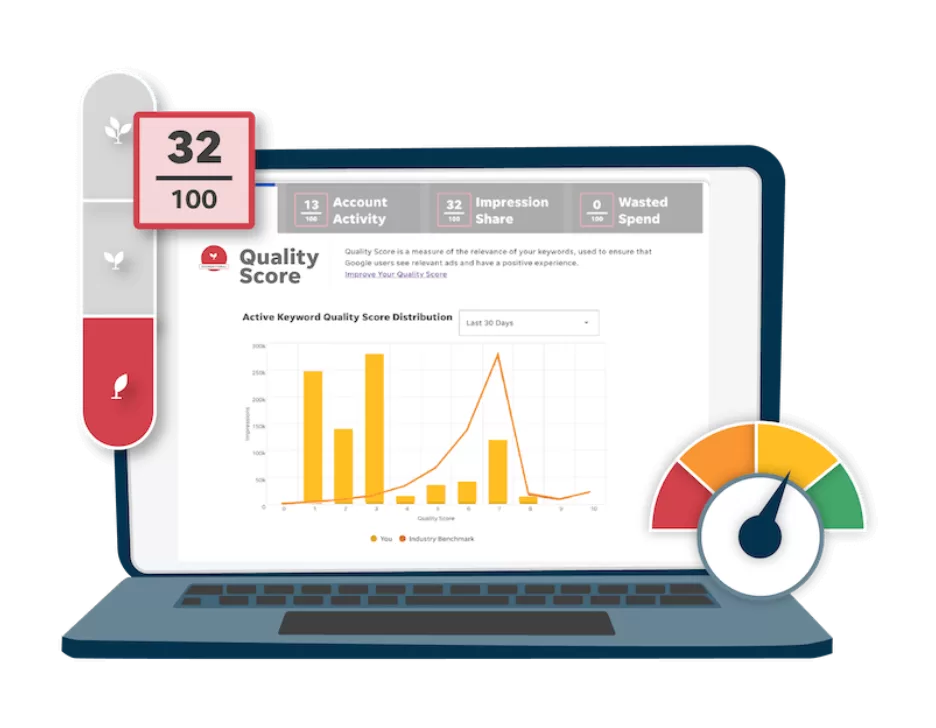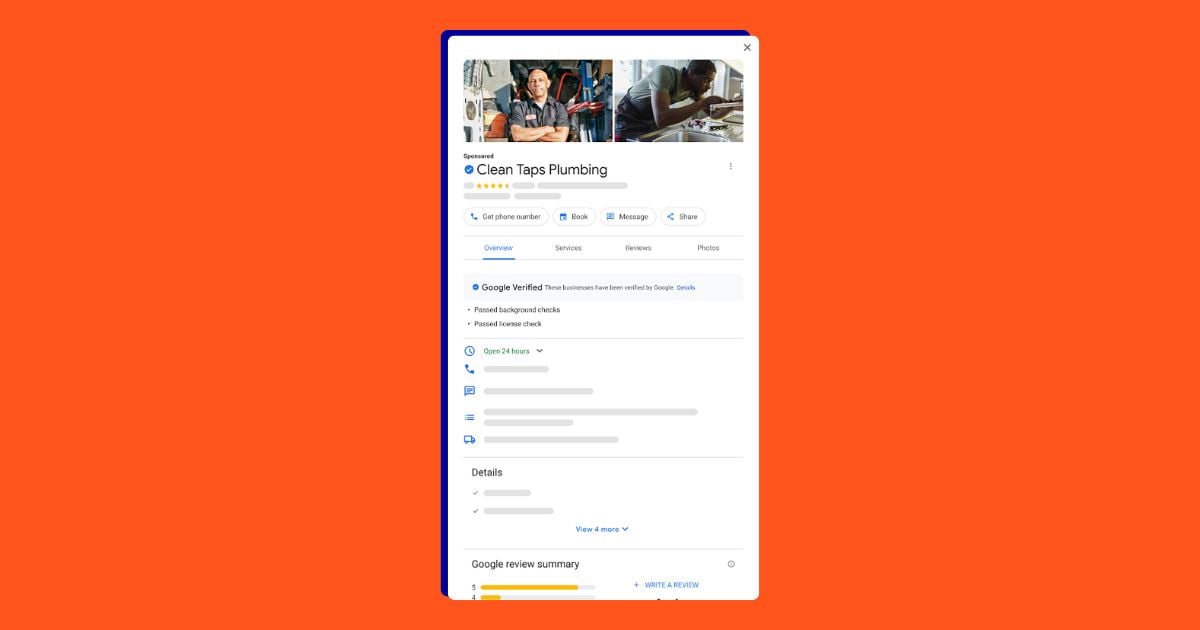If you use Google search (and who doesn’t), you may have noticed that sponsored results (Google pay-per-click, or PPC, ads) have been taking over more and more of the search engine results page.
Here at WordStream, we’ve noticed that too! So we decided to do some research into what impact all of these new, bigger, more prominent and engaging ad formats are having on the average Google searcher. The results are astonishing:
Clicks on paid search listings beat out organic clicks by nearly a 2:1 margin for keywords with high commercial intent in the US. In other words, 64.6% of people click on Google Ads when they are looking to buy an item online!
Click here to skip ahead:
Now, to be clear here, organic searches still get more clicks overall than paid search – but not all keyword searches are created equal. This is crucial to understanding SEO vs. PPC. Keyword searches with high commercial intent – meaning, keywords where a searcher is looking to buy a product or service (for example: “buy stainless steel dishwasher”) – are worth far more to businesses than your basic informational keyword searches (for example: “who is Thomas Edison”). Our research found that for valuable, high commercial intent keywords, paid search advertising listings gave the “free” organic search listings a resounding beat-down. Naturally, we’ve illustrated the results in an infographic. Click the image to see the full-size infographic:

What’s Driving the Organic Search Listing Smack-Down?
Much to the delight of internet marketers, new, bigger, more engaging and more targeted sponsored ad formats – which allow businesses to target prospective clients in more precise and relevant ways – are behind the increases in CTR for high commercial intent keyword searches. These new keyword advertising formats include:
- Product Listing Ads: In May of 2012, Google transitioned the previously free Google Product Search into a “Purely Commercial Model.” Product listing ads include large images and are automatically triggered if someone searches for a product that is in your Merchant Center account.
- Click to Call Ads: This powerful mobile ad format lets customers call a business phone number with the click of a button.
- Bottom of Page Ads: Catch their attention before they click to page 2 or refine their search.
- Mega Site Links: This huge ad format offers up to 10 additional places to click, greatly increasing your chances of presenting a relevant link.
- Social Ad Extensions: Show who has +1’d your site, which lends credibility and potential name recognition.
- Remarketing: Allows companies to track site visitors with a cookie and chase them around the Web, displaying relevant banner ads until they click and convert. If you’re going to use this strategy, try using our Smart Ads Creator to create designer-quality display ads in seconds.
- Map/Location Ad Extensions: Display your address and phone number to local searchers, enticing them to visit you faster. Advertise only to customers in the vicinity.
- Chat Ads: Prompt viewers to open a chat window with a sales guy – get those leads while they’re hot!
- Email Ads: Prompt users to provide an email address right from the search result page.
- Etc.
Couple these and other exciting new ad innovations with the fact that approximately half of searchers still can’t differentiate between paid and organic search listings, and you can quickly see what’s happening here. Advertising on Google will become a means to survival on keywords with high commercial intent, and the best advertisers will reap the benefits. (More on the importance of intent in marketing here.)

A War on Two Fronts
While these innovative new paid search advertisement options are rapidly growing in size and power, Google is simultaneously waging all-out war on SEO web spam. Over the past few months we’ve seen significant updates that make it harder to rank in organic search, including:
- Panda Update (Feb 2011) – Google cracks down on “thin content” and ad-heavy sites. Up to 12% of search results are impacted.
- Google Analytics Update (Oct 2011) – Google stops providing reliable access to organic search query data. Advertisers basically need to use Google Ads (formerly known as Google AdWords) to get full access to search query data. (Click here for more tips on dealing with the “not provided” fiasco.)
- Matt Cutts Threatens to Penalize SEO’s (March 2012) – At SXSW, Matt Cutts issues a warning to sites doing “over optimization,” declaring: “we want to make that playing field a little bit more level.”
- The Shot Heard Around the SEO World (April 2012) – Google warns an estimated 1 million websites about unnatural links and orders webmasters to cease and desist these manipulative activities.
- Penguin Update (May 2012) – AKA the “Over Optimization Penalty” or “OOPS.” Google devalues sites employing keyword stuffing and spammy link tactics.
The net result is that organic search has become significantly harder and more costly to execute, nearly impossible to measure, and yields increasingly unpredictable ROI.
SEO vs. PPC: Who’s Winning this War?
It’s too early to declare a victory for either side. The one thing that is clear from our research is that the board is set and the pieces are in motion. What do you think of the shifting battlegrounds here? Let me know what you think in the comment fields below.
Acknowledgements
A special thank you to my colleagues, Miranda Miller (Search Engine Watch), Aaron Wall (SEO Book), Tom Demers (Measured SEM), AJ Kohn (Blind Five Year Old), and Elisa Gabbert (WordStream), all of whom provided incredibly valuable input and commentary into the design and data of this research study.
Survey Methodology
Our survey was limited to advertisers in the US, for Google Search only. In our survey, we define high commercial intent keywords specifically as keyword searches on Google that have significant advertiser competition and trigger a Google Shopping or Google Product Listing ad.
We used recent average click-through rate data collected through our AdWords Performance Grader across over one thousand Google Ads accounts in the last 60 days. We also looked at the Google Analytics/Webmaster Tools and Google Ads account data of WordStream’s managed accounts to analyze organic click-through rate data and trends.
Because people often click on multiple ads and/or organic search listings from a single search result page (which makes the click-through rates of all of the paid and organic listings add up to more than 100%), we normalized the CTR data to reflect the % share of traffic generated for each paid and organic search listing present on a typical search engine results page.








